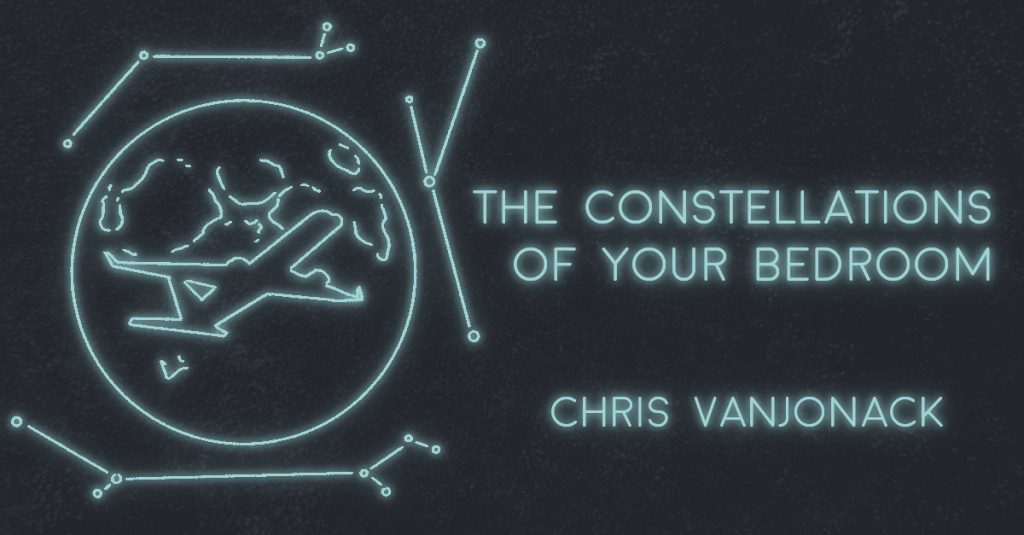After stumbling drunk into your bedroom, crawling onto your twin-sized mattress, and wrapping yourself in dirty bedsheets, you find that you are staring into oblivion. You can see the stars, the moon, and an airplane, each obscured only somewhat due to the haze of neon lights surrounding your apartment. The air is cold and you are so overwhelmed by your hour-old breakup on the dancefloor of a crowded dive bar that it takes you longer than it should to process what would otherwise be obvious:
Your ceiling is gone.
Still sad about your ex, you rack your brain for how this could have happened. Might this be some twisted act of vengeance by your former significant other—to literally take the roof off from over you? To expose you to the elements? To leave you cold?
After a moment of fevered rage, you realize that your newest ex probably hasn’t even deleted you on Facebook yet, much less orchestrated the removal of your bedroom ceiling.
You ask yourself: was your ceiling still here this afternoon, when you awoke at 1:35pm, already over a half-hour late to a lunch date with your ex’s family? Was it still here at 3:17pm, when you remembered that you had missed lunch entirely? What about 3:41pm, when you called to apologize, and—although you sensed a tone of resigned exasperation—managed to convince the lips you knew so well to surrender an, “I’ll be there,” on the subject of joining you and your buddies for a wild night of bar hopping? And what about when you left at 10:15pm, late again for no real reason other than that you were really into an episode of Ghost Hunters?
Of course it was. It was still here this evening, this afternoon, this morning, yesterday, the day before yesterday, the day before that, etc. etc. etc.
It’s funny: for such an ever-present figure in your life, you can remember very few specifics about your missing ceiling. In the three years you have lived in that bedroom, you have spent almost no time at all considering it. If you were to call the cops to report a missing ceiling, what might you even say about it? Could you speak to its exact dimensions? To its shade of gray? To the consistency of its paint job? To its history? To its character? To its hopes? Dreams? Regrets? Fears? To its belief in the unknown?
You could not; you never asked.
In the distance there is a strike of lightning, a crack of thunder, and a moment later, thick, powerful bursts of rain descend from above. The wet seeps through your blanket and to your bones. You shiver and try to curl up inside yourself.
This shit never used to happen when the ceiling was here.
Pathetic, drunk, missing your ceiling and longing for warmth, you cannot help but whimper, “I’m sorry I never appreciated you,” your voice so weak that you barely hear it. “Please come back,” you say. “I’ll start taking note of you. I’ll say hello when I wake up. Goodnight, when I go to bed. I’ll stick glow-in-the-dark stars against your surface. When the lights go off you’ll look like the solar system.”
Another crash of thunder shakes your bed frame, and, impossibly, the rain comes down even harder. Your carpet is ruined. Your things are ruined. The night is long.
When you crawl out of your soaking bed the next morning, your ceiling is still absent. You take a hot shower and put on a damp t-shirt and go into town to purchase new bedsheets and a tarp. At the bus stop, you run into an old acquaintance. The exchange is pleasant but she looks distracted.
“My ceiling left last night,” she says, finally. “One minute it was there and then the next—poof—no more ceiling.”
“I thought I was the only one,” you say.
An old man sitting on the bench looks up from his paper. “Haven’t you heard?” he asks. “It’s happening everywhere.” His voice trails off as he scans his newspaper and coughs. “They’re calling it curious,” he says, “the scientists. They’re saying we didn’t love them enough.”
You resolve to start appreciating your floorboards. Once you get home you tell them what a great job they’re doing—how important they are to your sense of security.
“Thanks for being here,” you say. “Thanks for holding me up.”
The gesture of acknowledgment becomes a twice-daily ritual. You recite this gratitude every morning. Every night. Even when you’re exhausted. Even when you’re down, drunk and depressed. Even when the weather outside is so chaotic that the elements threaten to pummel and soak you until your skin is raw, until you are nothing but the sum of all your thank-yous.

